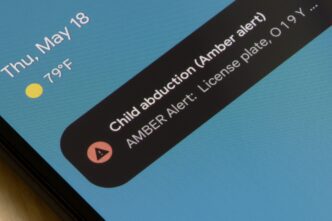As the new year begins, Florida implements crucial laws affecting children and condominium owners across the state. These legislative changes aim to address concerns over online safety for minors and structural safety for residential properties.
Starting this year, Florida has introduced a stringent social media regulation that impacts children under 14. This new law mandates parental consent for those aged 15 and 16 to access such platforms. Governor Ron DeSantis highlighted the risks associated with unsupervised social media use, noting potential threats from online predators stating, “Now with things like social media and all this, you can have a kid in the house, safe seemingly, and then you have predators that can get right in there, into your own home.” Platforms are now required to identify and remove underage profiles, and if upheld, social media companies face significant penalties up to $50,000 per infraction. Critics contest the constitutionality of the law, arguing it infringes on parental rights. State Representative Paul Renner pointed out the platforms’ role in crime against children and their negative impact on youth mental health. Meanwhile, Florida Attorney General Ashley Moody emphasized the necessity of protecting children in the digital realm, given their limited maturity and experience.
While the social media law garners significant attention, Florida has also enacted a law affecting condominium fees statewide. This legislation, a response to the tragic Champlain Towers South collapse, mandates condo associations maintain sufficient reserves for major repairs and conduct decadal audits. Many older condo properties, predominantly in South Florida, will see increased association fees as a result. Kelli Roiter, a condo owner, expressed her concern about the safety of aging buildings, “There’s another Champlain Towers around the corner,” she remarked, illustrating the pervasive anxiety among residents.
Although these fee hikes pose a financial challenge to many owners, there is a prevailing sentiment of support for the new measures if they improve building safety. Roiter shared her personal experiences of unease living in an aging condo, “There are nights I wake up hearing a creak, and I jump,” underscoring the ongoing worry for residents. These laws reflect a significant shift in Florida’s legislative approach, seeking to address pressing community safety issues.
As Florida moves forward with these laws, the state grapples with balancing safety and constitutional concerns. The outcomes of these legal interventions will unfold in due course, impacting how residents manage both digital safety for their children and structural integrity in their homes.
Source: Wsvn








